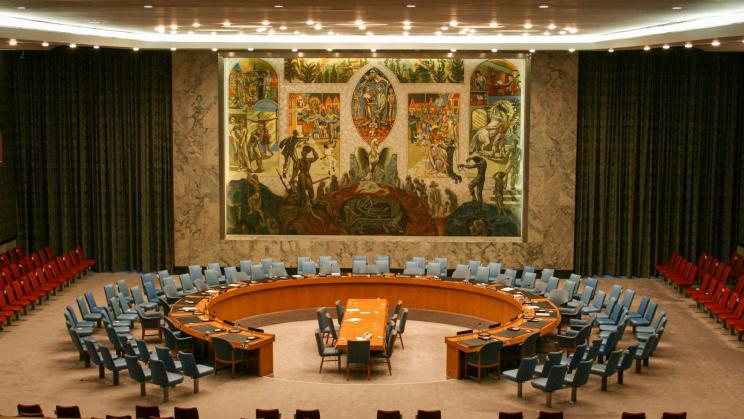
SIPRI and the Norwegian Institute of International Affairs (NUPI) have agreed to a three-year cooperation with funding from the Norwegian Ministry of Foreign Affairs. The aim of the collaboration is to inform the United Nations Security Council about climate-related security and development risks for selected countries and regions on the Security Council’s agenda.
As part of the project, SIPRI and NUPI are releasing a new Fact Sheet on climate-related peace and security risks in Somalia. The Fact Sheet is launched ahead of the UN Security Council meeting on the renewal of the mandate for the African Union Mission in Somalia (AMISOM), scheduled for the end of February.
Download the Fact Sheet here.
Somalia is highly susceptible to the effects of climate change and extreme weather. These include, but are not limited to, drought, sandstorms and increased temperatures, but also more frequent flash floods, erratic rainfall and cyclones. Without adequate responses, these factors are likely to exacerbate existing vulnerabilities and affect people’s livelihood options, which in turn may have negative impacts for stability and security in Somalia. More frequent and intense droughts and floods are already worsening livelihood conditions in Somalia today, marginalizing affected groups, and fuelling grievances and community tensions over resource access.
Building on SIPRI’s long-term work on climate security, the report uses four interrelated pathways to illustrate the relationship between climate change and security in Somalia. These include: (a) livelihood deterioration, (b) migration and mobility, (c) military and armed actors, and (d) political and economic exploitation.
As the Fact Sheet describes, these factors have implications for ongoing conflict and the security situation. First, adverse climate impacts lead to displacement, particularly when they affect agricultural livelihoods that are influenced by both droughts and floods. This displacement can fuel tensions at the community and national levels and upset existing peace agreements. Internally displaced person camps can be hotspots for clan conflict and armed group recruitment. Second, armed groups, such as al-Shabaab, can take advantage of climate impacts by positioning themselves as a service and relief provider following rapid-onset disasters, such as droughts and floods. Third, rapid-onset disasters can tie local resource conflicts to broader insecurity when local elites use them to advance their control over resources, further their strategic aims or seek alliances with national elites to strengthen their position in local conflicts.
Climate action can serve as a catalytic framework for investing in sustainable peace, including strengthening the role of women and youth as agents of positive change, engaging diverse communities in environmental peacebuilding, and strengthening state service provision and climate-sensitive development.
About the Climate-related Security and Development Risks project
The project aims to generate reliable, relevant, timely and actionable information and analysis on climate-related security and development risks for selected countries and regions on the UN Security Council agenda. The research is aimed at backstopping the work of Norway during its period as an elected member of the Security Council. The project is funded by the Norwegian Ministry of Foreign Affairs between 2020 and 2023.
Read more about the project here.